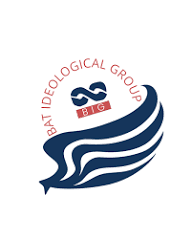WHO Advocates Investments in Nursing Education, Working Conditions, Leadership Opportunities in Africa

Dr. Chikwe Ihekweazu, Acting World Health Organisation (WHO) Regional Director for Africa, has emphasized the need for sustained investments in the education, working conditions, and leadership opportunities of nurses in Africa.
This, he said, is crucial to addressing the challenges confronting the nursing profession on the continent and ensuring the future of healthcare systems.
According to Dr. Ihekweazu, the current state of nursing in Africa is unsustainable, despite significant investments and a near doubling of the nursing workforce since 2018.
The continent still lags behind in global health system growth indicators, and the nursing workforce remains inadequate to meet the healthcare needs of the population.
In his message to mark International Nurses Day 2025, Dr. Ihekweazu noted that while the global nursing workforce has grown to 29.8 million, the progress conceals significant inequities.
He pointed out that 80% of nurses serve only 49% of the world’s population, leaving many communities without access to essential healthcare services.
Dr. Ihekweazu highlighted several challenges facing nursing in Africa, including:
* A severe shortage of nurses, with the continent accounting for 66% of the projected shortfall of 6.1 million health workers by 2030.
* Limited access to mentorship and clear career pathways for young nurses.
* High rates of nurse migration to high-income countries, with 42% of African nurses reporting an intention to emigrate.
* Constrained budgets, with African countries facing an average 43% shortfall in health workforce financing.
Despite these challenges, Dr. Ihekweazu expressed optimism that there are signs of hope. He noted that African leaders have endorsed the Africa Health Workforce Investment Charter, a landmark commitment to long-term progress. Several countries are now engaging in national dialogues, generating data, and developing tailored Investment Compacts to support their health workforces.
Dr. Ihekweazu cited Zimbabwe’s Investment Compact as an example, which is projected to mobilize an additional $166 million annually over the next three years to support the country’s health workforce. He reminded stakeholders that nurses are not only caregivers but also educators, innovators, and frontline responders who often serve in the most remote, under-resourced, or crisis-affected settings.
As the continent marks International Nurses Day, Dr. Ihekweazu urged all actors to move beyond expressions of gratitude and commit to real, measurable actions that will train, protect, respect, and empower nurses to lead. He emphasized that building strong and equitable health systems depends on how well nurses are supported, and that investing in nursing education, working conditions, and leadership opportunities is critical to the future of healthcare in Africa.









